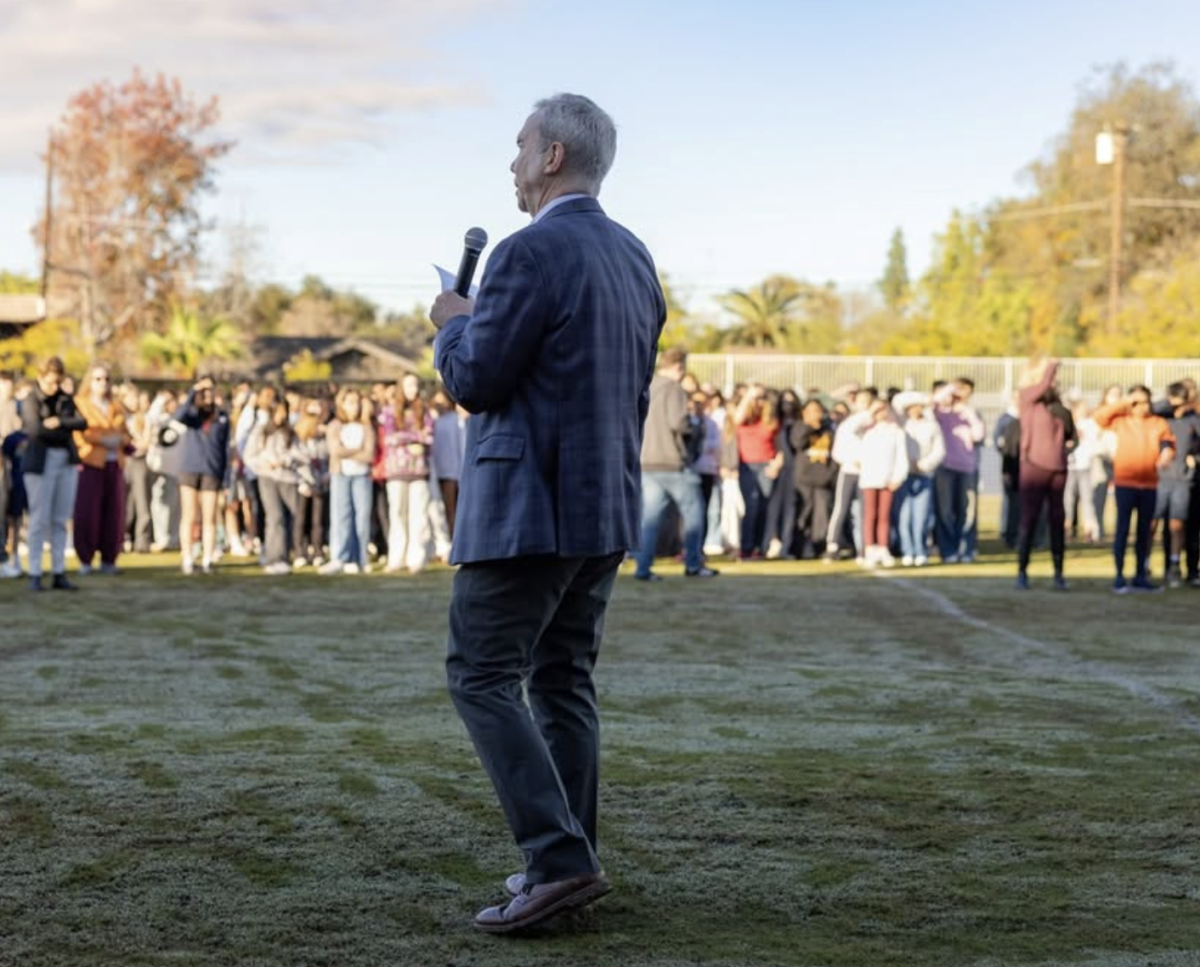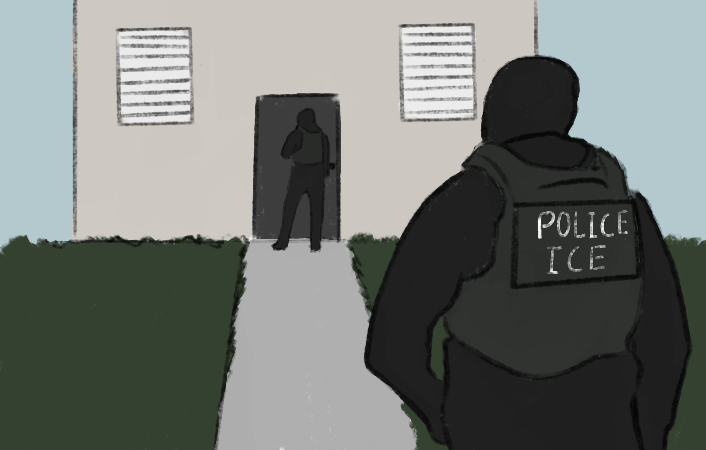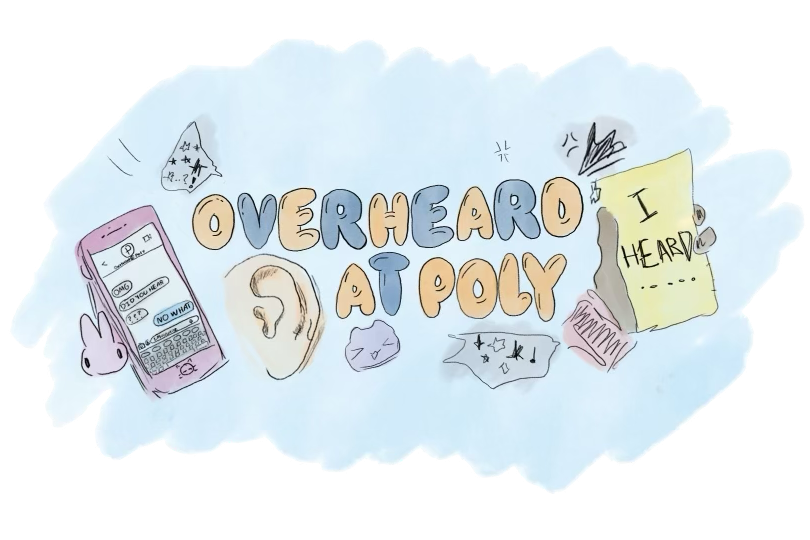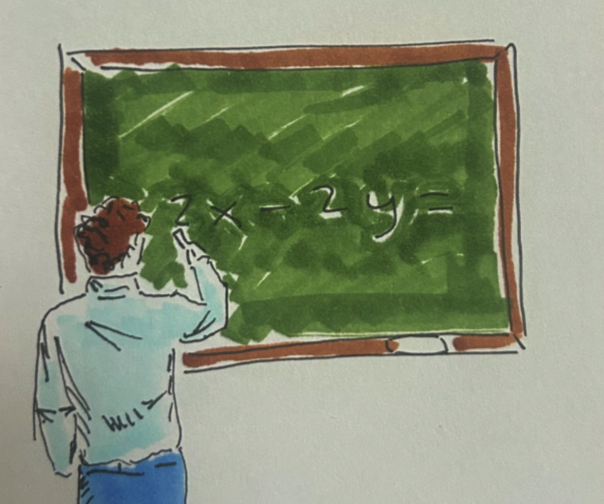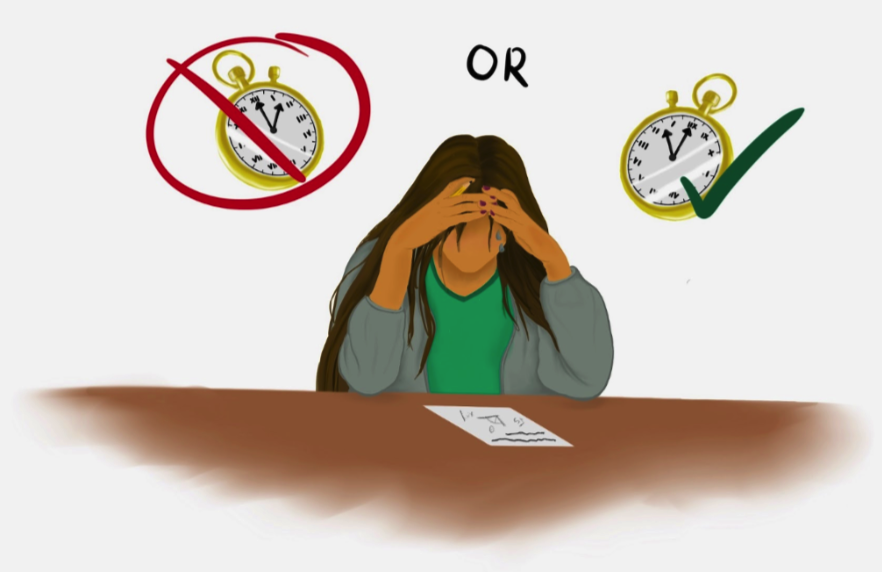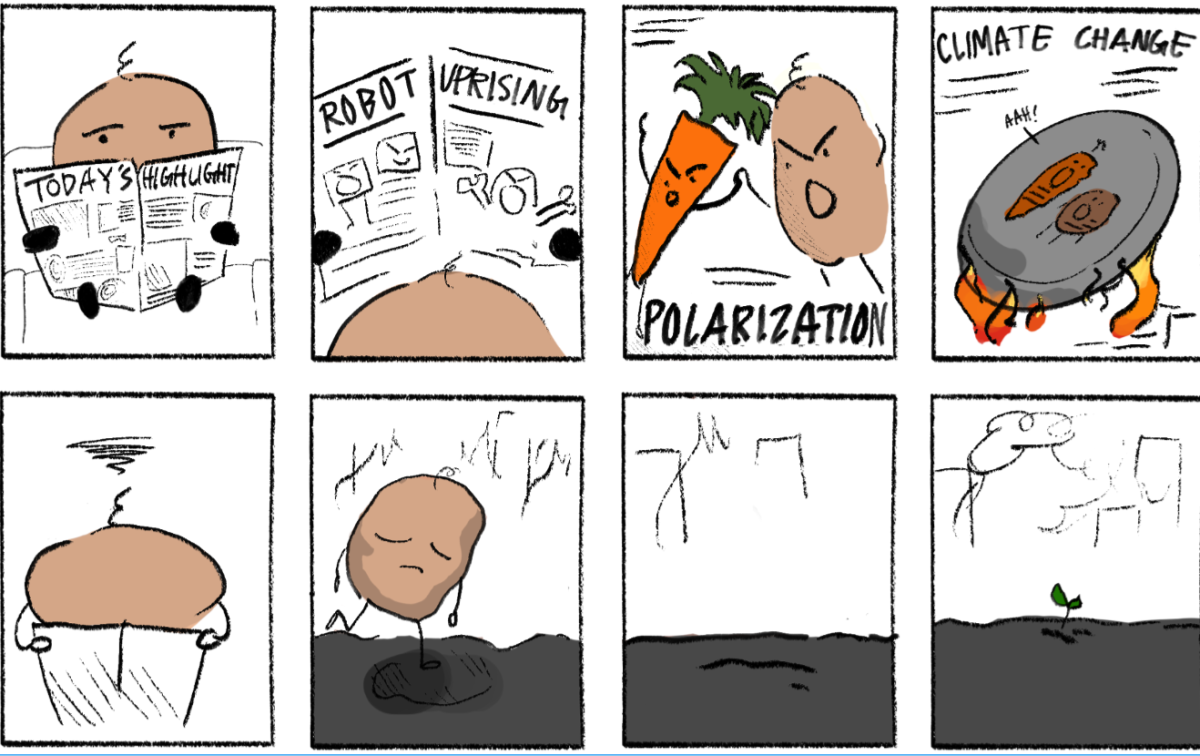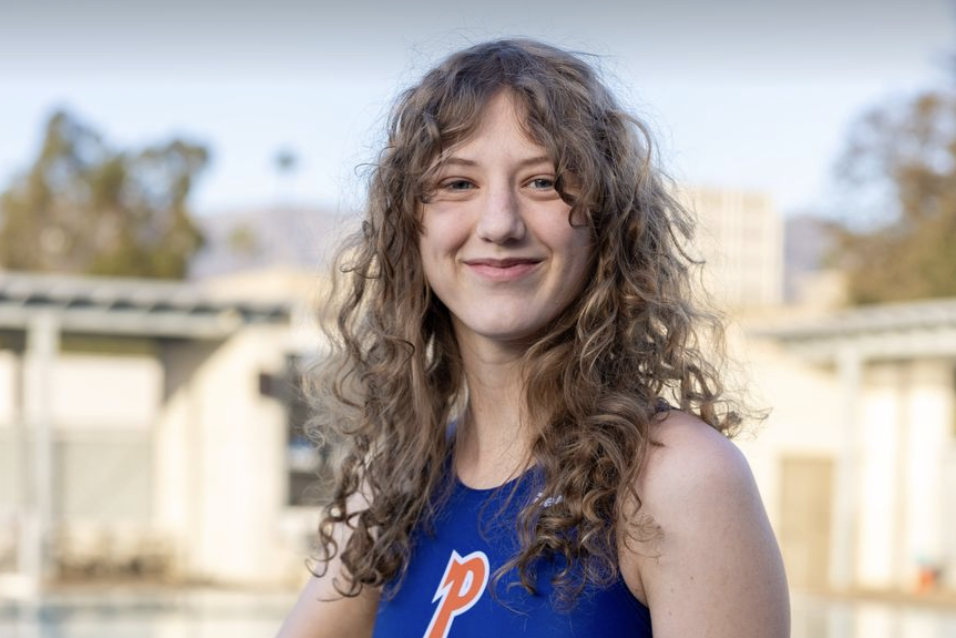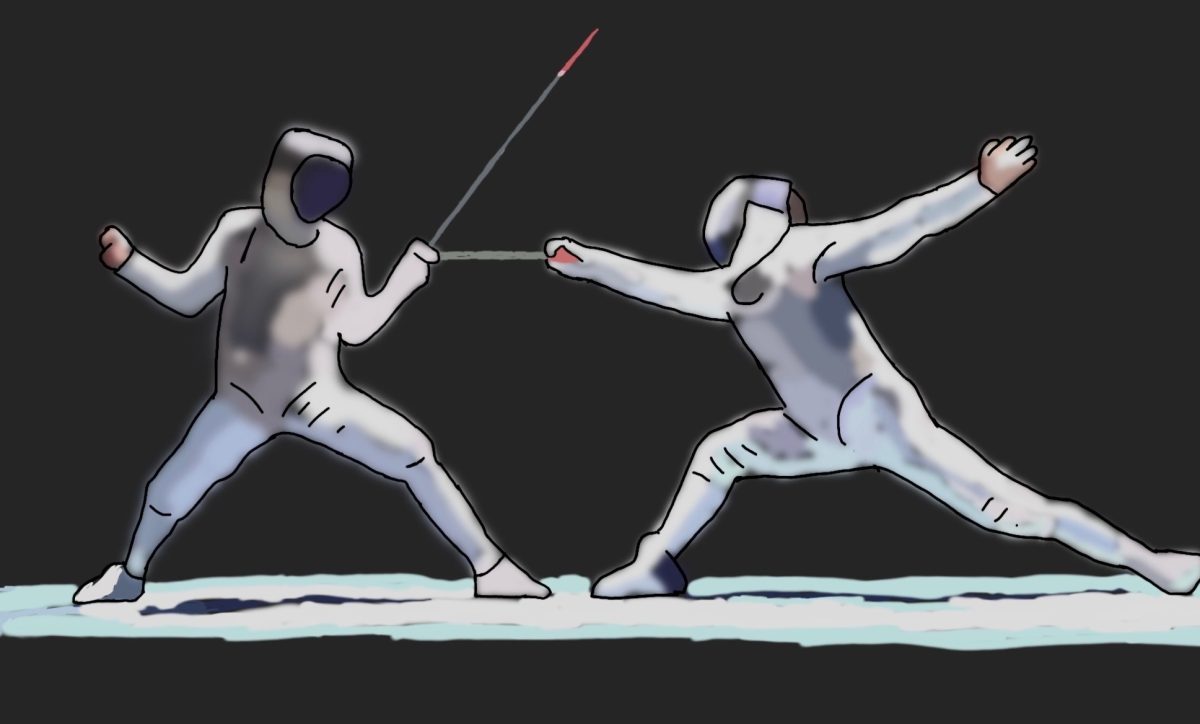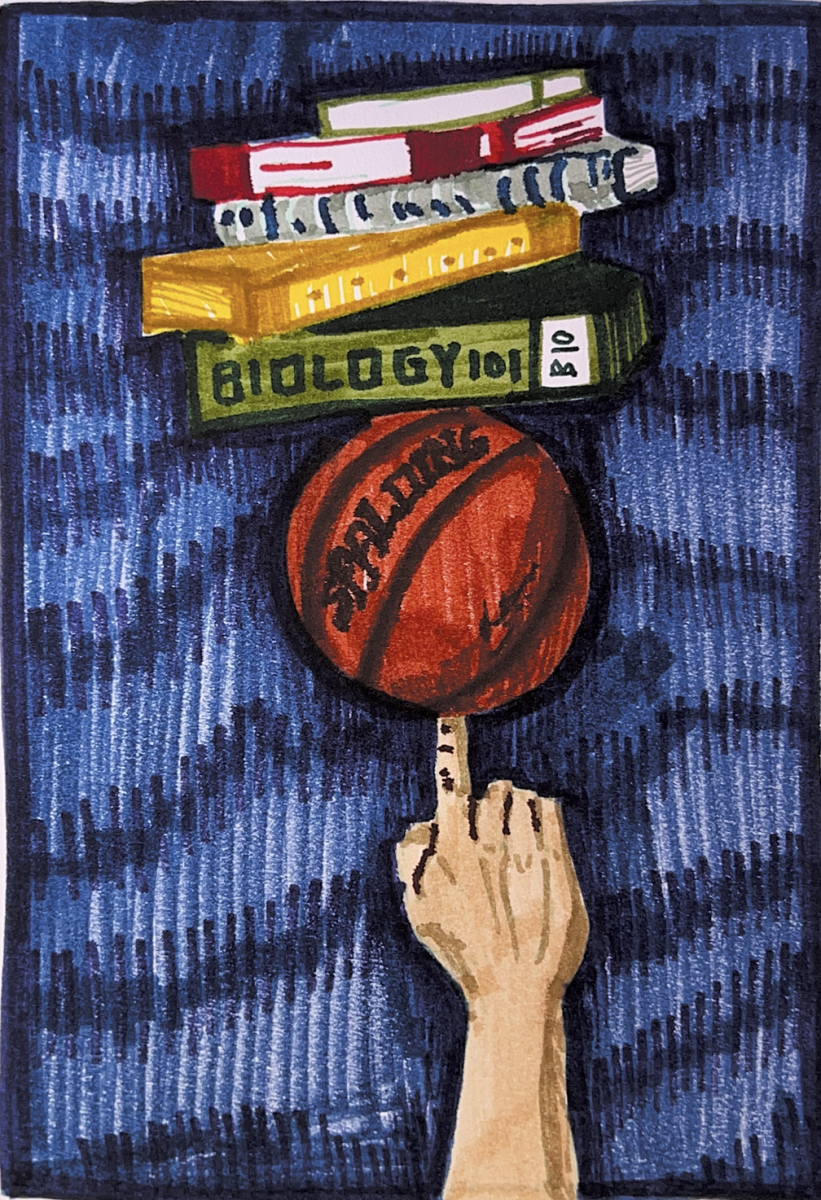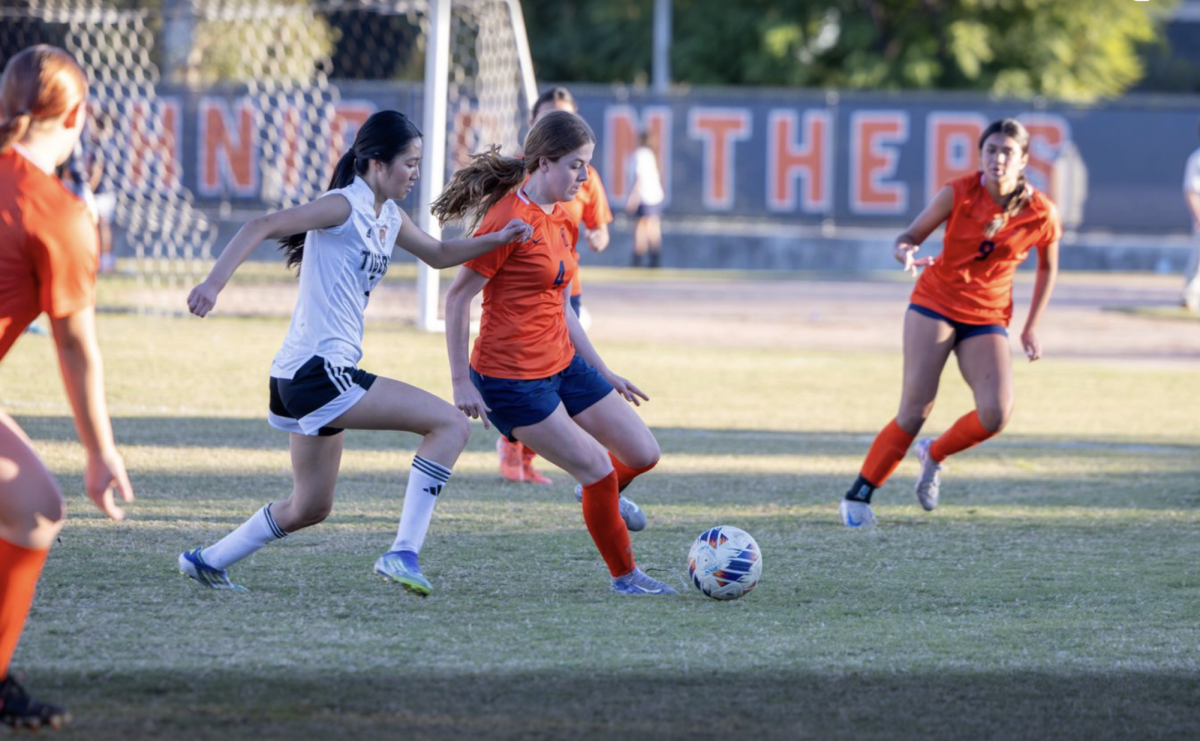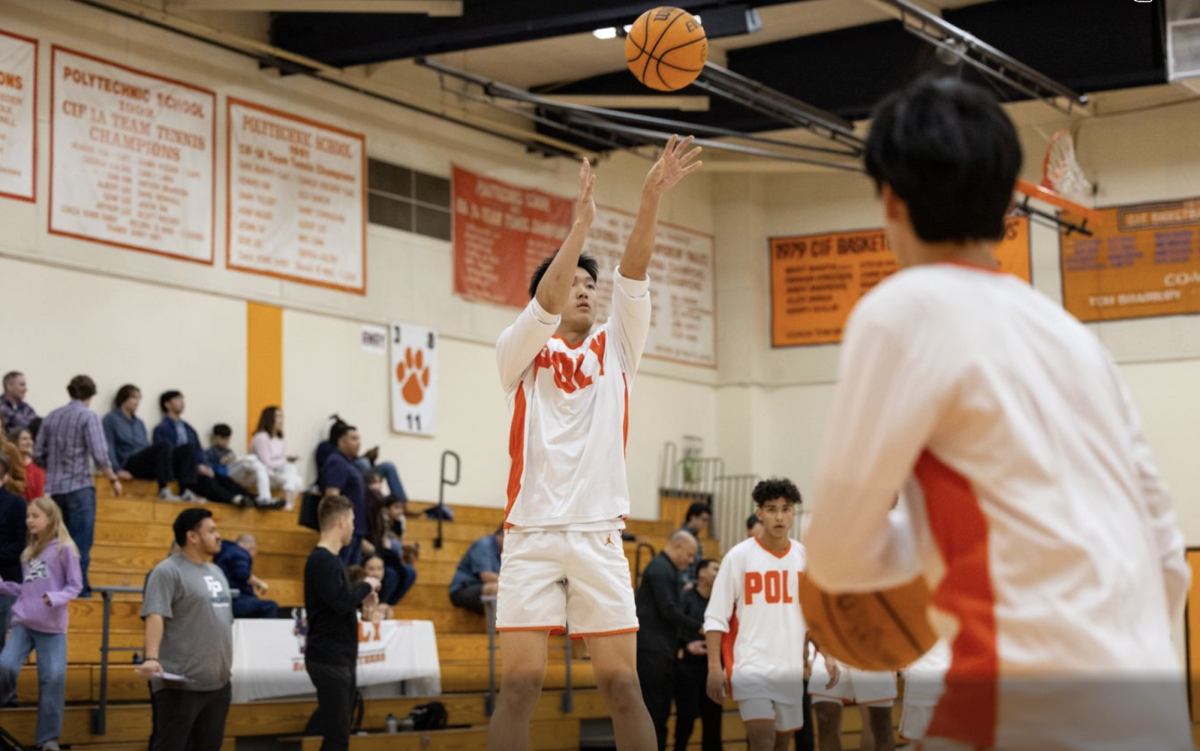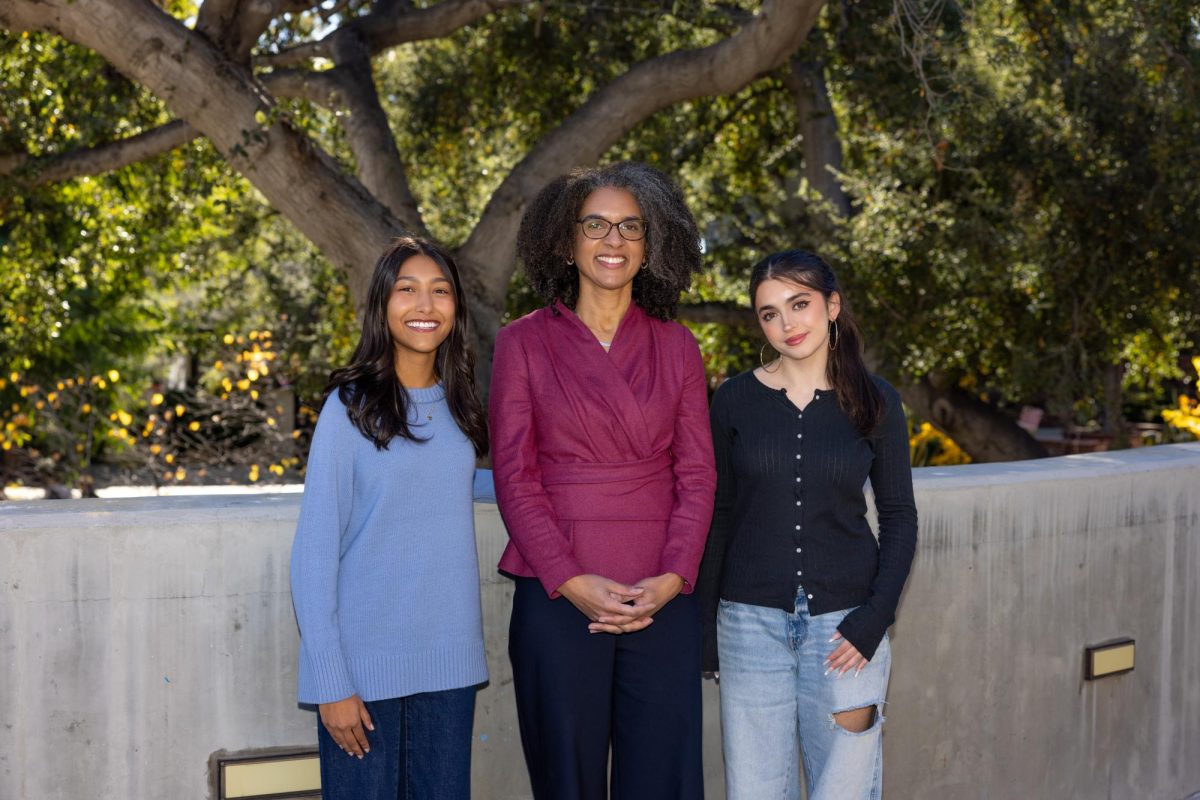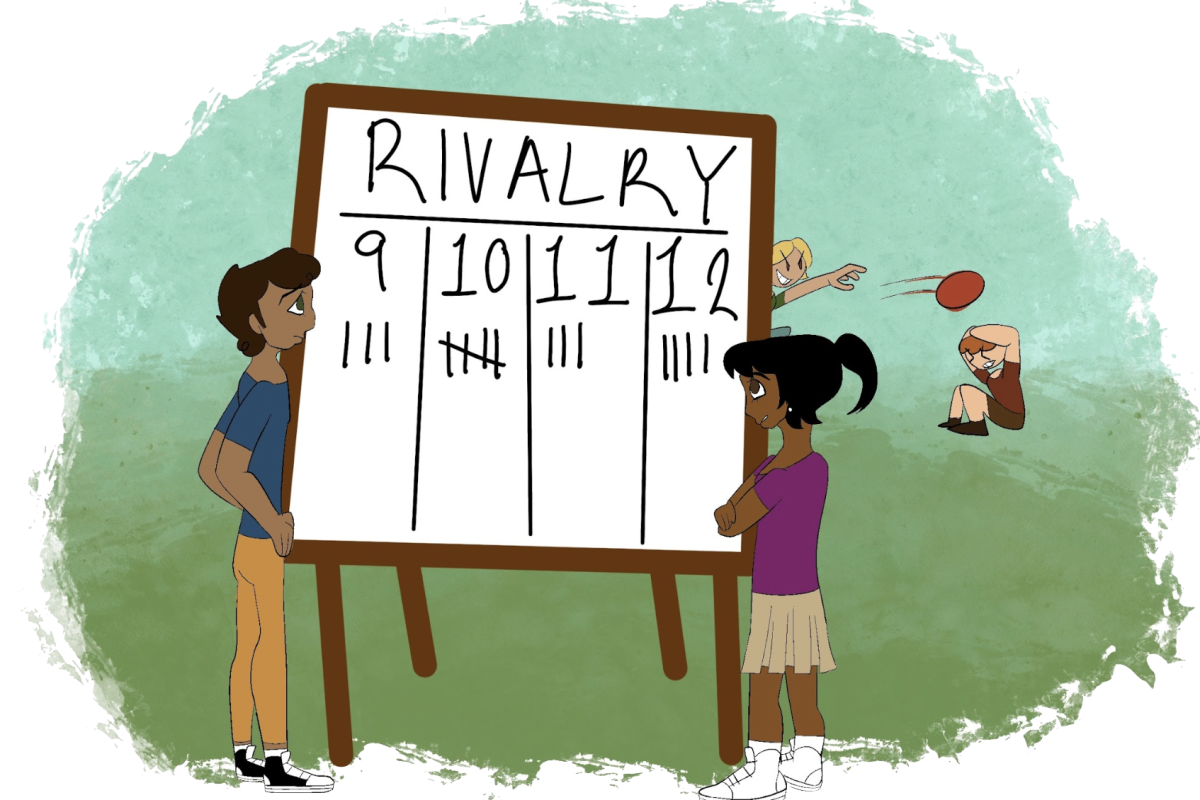Rivalry Week is always one of the most anticipated events of the year—a week packed with fun and engaging competitions designed to foster class spirit and bring joy to Poly Upper School students. However, this year’s Rivalry Week revealed unfair voting systems and minimal regulation, tainting the experience for many.
As the week of activities came to a close this year, students gathered eagerly around Arden Lawn for the beloved slip-and-slide rivalry, where each grade nominates up to six individuals to compete in a relay race in which each competitor must glide down a tarp set up on Arden before sprinting up the hill to tag their teammate. This year, the senior and junior teams clashed in the finals, with the juniors quickly taking the lead after an electric start.
With 11th grade in the lead and only a couple of rounds left, junior Will Oreck was next up. But before he could race down the hill, Oreck stumbled and then refused to continue, forcing a race restart. In an interview after the event, Oreck emphatically stated, “As I was about to go, multiple spectators grabbed me from behind. It messed me up and ruined our race. It also ruined our mentality for the rematch.”
The seniors went on to defeat the juniors in the restarted race—in no small part due to the foul play that disrupted the original run. While the juniors originally had a commanding lead and likely would have won, the actions of a few spectators derailed their hopes of securing victory.
The voting system in the lip-sync rivalry, another fan-favorite event, also disadvantaged the junior class. This year, juniors Connor Mallinger, Nicholas Otamura, Warren Peng and Abraham Shorter performed a captivating rendition of “24K Magic” by Bruno Mars, with practiced choreography and lip-syncing.
However, regardless of their strong performance, the junior team entered the competition with a significant hill to climb. Unlike other performance-based rivalry activities judged by a panel, the lip-sync battle was decided by student and faculty votes. The problem, however, is that the junior class has by far the least amount of students—88 compared to 102 for the freshmen, 99 for the sophomores and 93 for the seniors—and nearly every student will vote for their own class. Indeed, the juniors’ strong performance wasn’t enough to overcome the built-in deficit caused by the small class size of the junior class, and the seniors ended up winning the lip-sync rivalry.
The unfair treatment of the junior class this year reflects larger issues with rivalry week. A lack of regulation and imbalanced voting systems detract from the spirit and fun of rivalry week by drawing attention from the actual competition toward the outside factors of voting systems and cheating.
These issues will only worsen if the Associated Student Body (ASB) does not make changes. If blatant interference goes unpunished, students will learn that disrupting competitors is an effective strategy to secure wins. To ensure fair play, there needs to be better regulation of rivalries with consequences such as a point deduction, disqualification or detention for those who disrupt a rivalry or endanger other competitors.
The student-voting imbalance must also be addressed. After the seniors graduate, the current juniors will still have 11 fewer individuals than the current sophomores and 14 fewer than the current freshmen, assuming there are no changes in class size. The best solution to this issue would be to ensure that only teachers can vote for the winners of events. This revision would ensure that the winner is determined based on the quality of the performance, not the quantity of the class.
Overall, the slip-and-slide and lip-sync rivalry exemplify the injustices against the junior class. The individuals who held back Oreck in the slip-and-slide rivalry unfairly helped the senior team win, and the voting system of the lip-sync rivalry disadvantaged the junior team from the very start. However, these incidents are not the only examples of cheating leading to the restart or cancellation of a rivalry: earlier this year, the results of the twin telekinesis rivalry were voided due to cheating, demonstrating that unfair play has the potential to affect all grades.
If the ASB does not make changes for next year’s rivalry week to ensure safer and fairer competition, injustices will continue to riddle Rivalry Week and create an uneven playing field.

